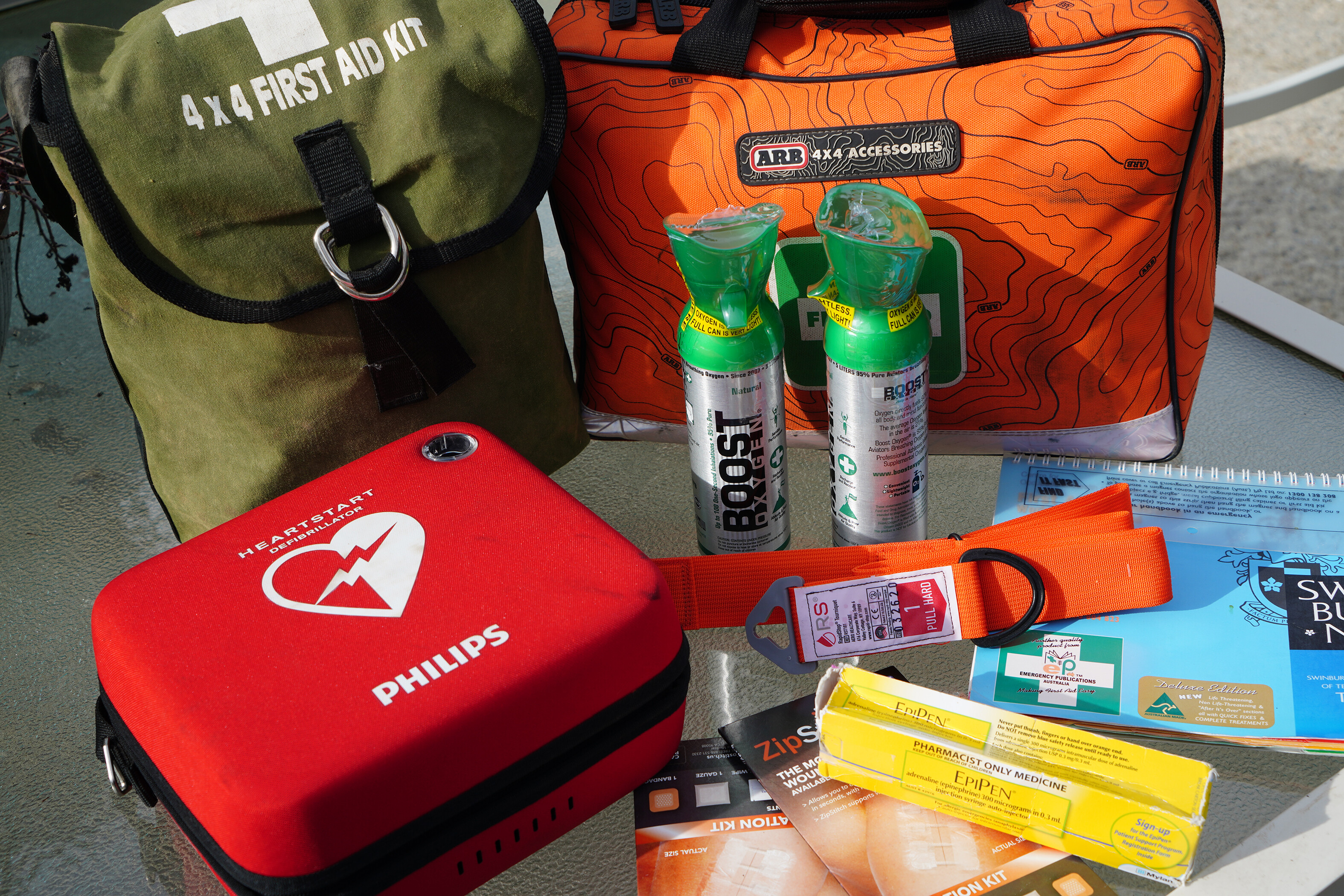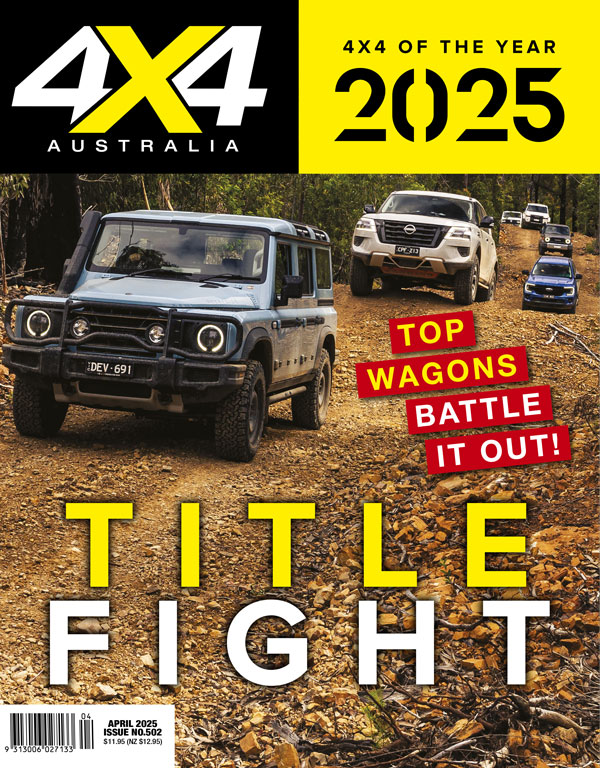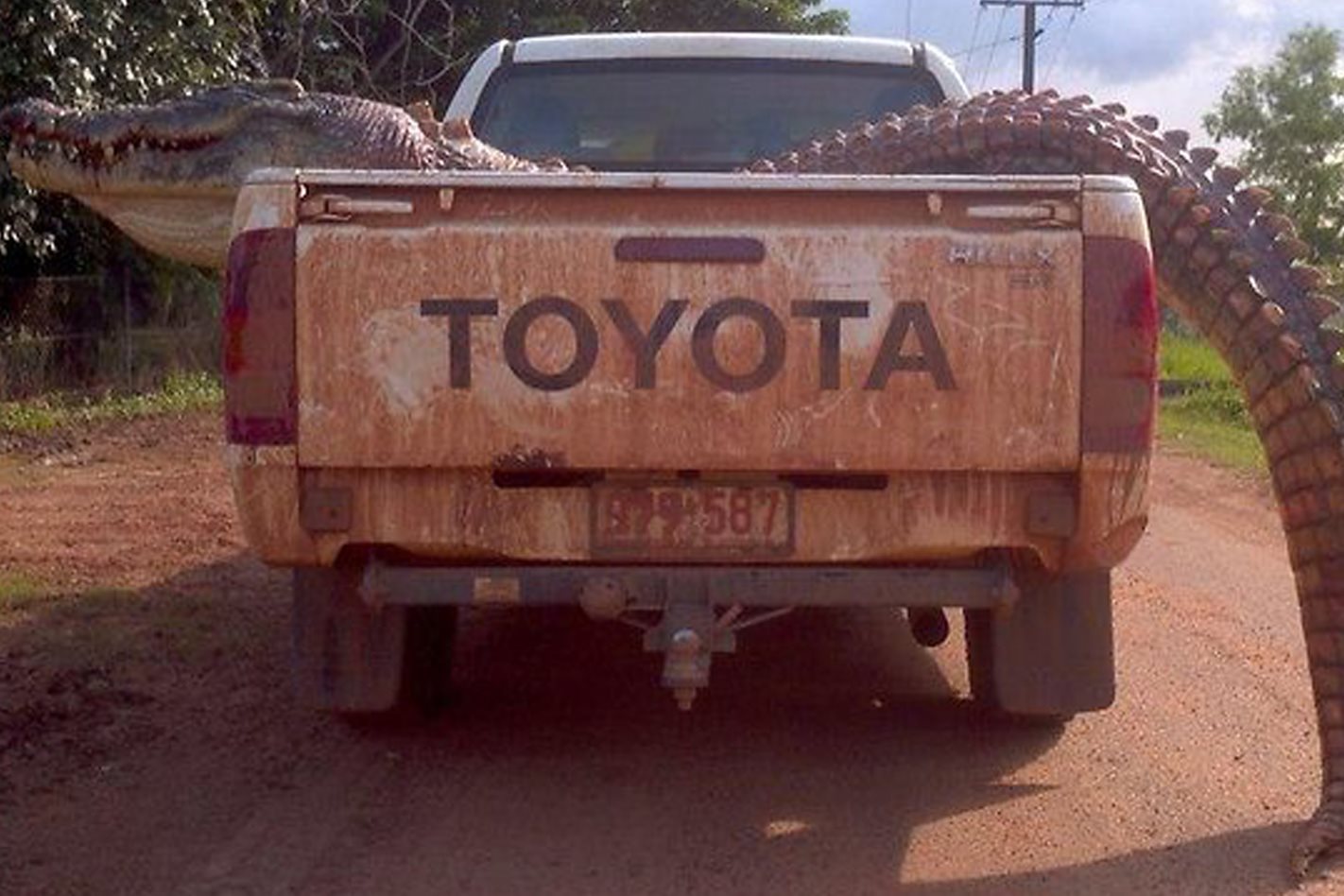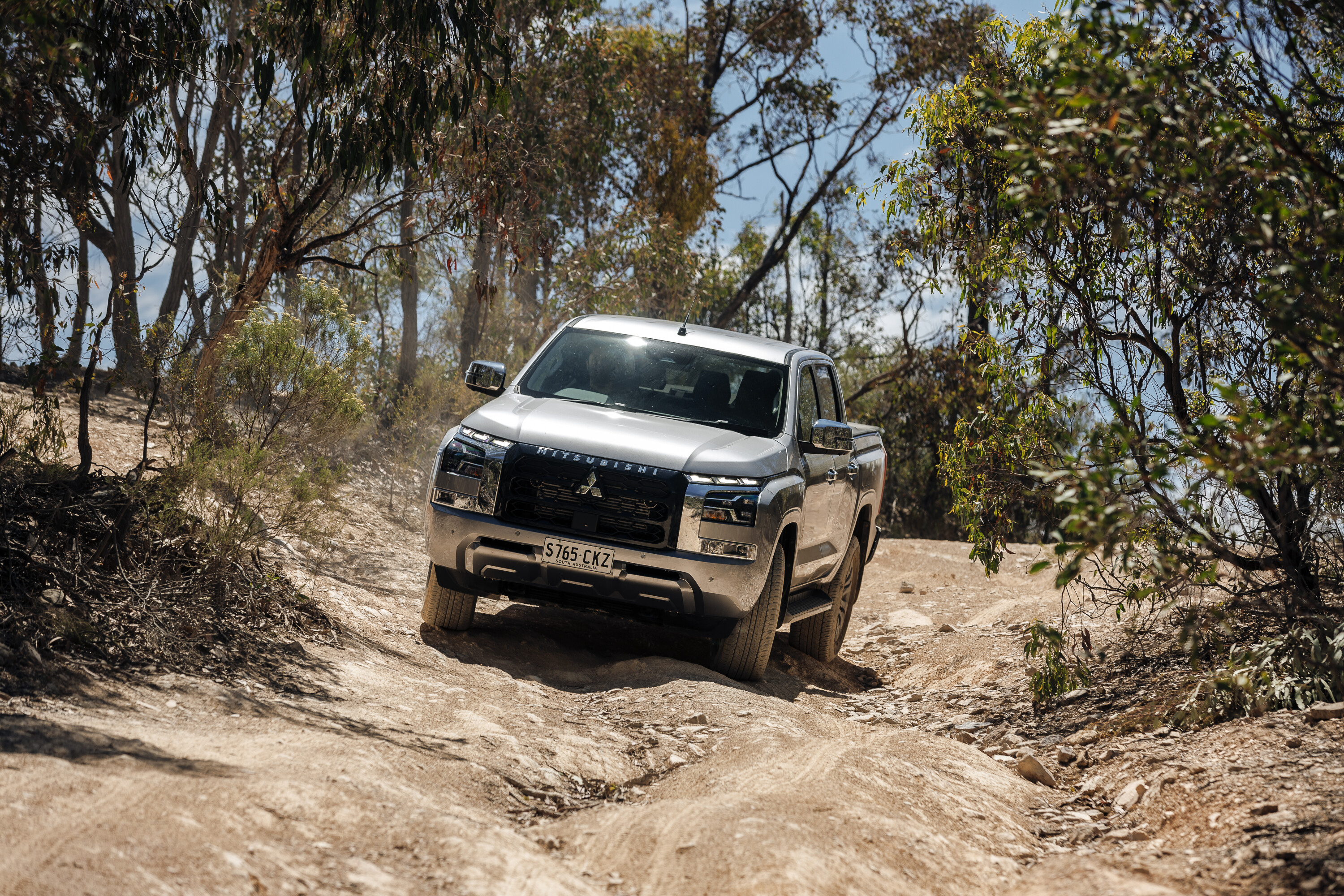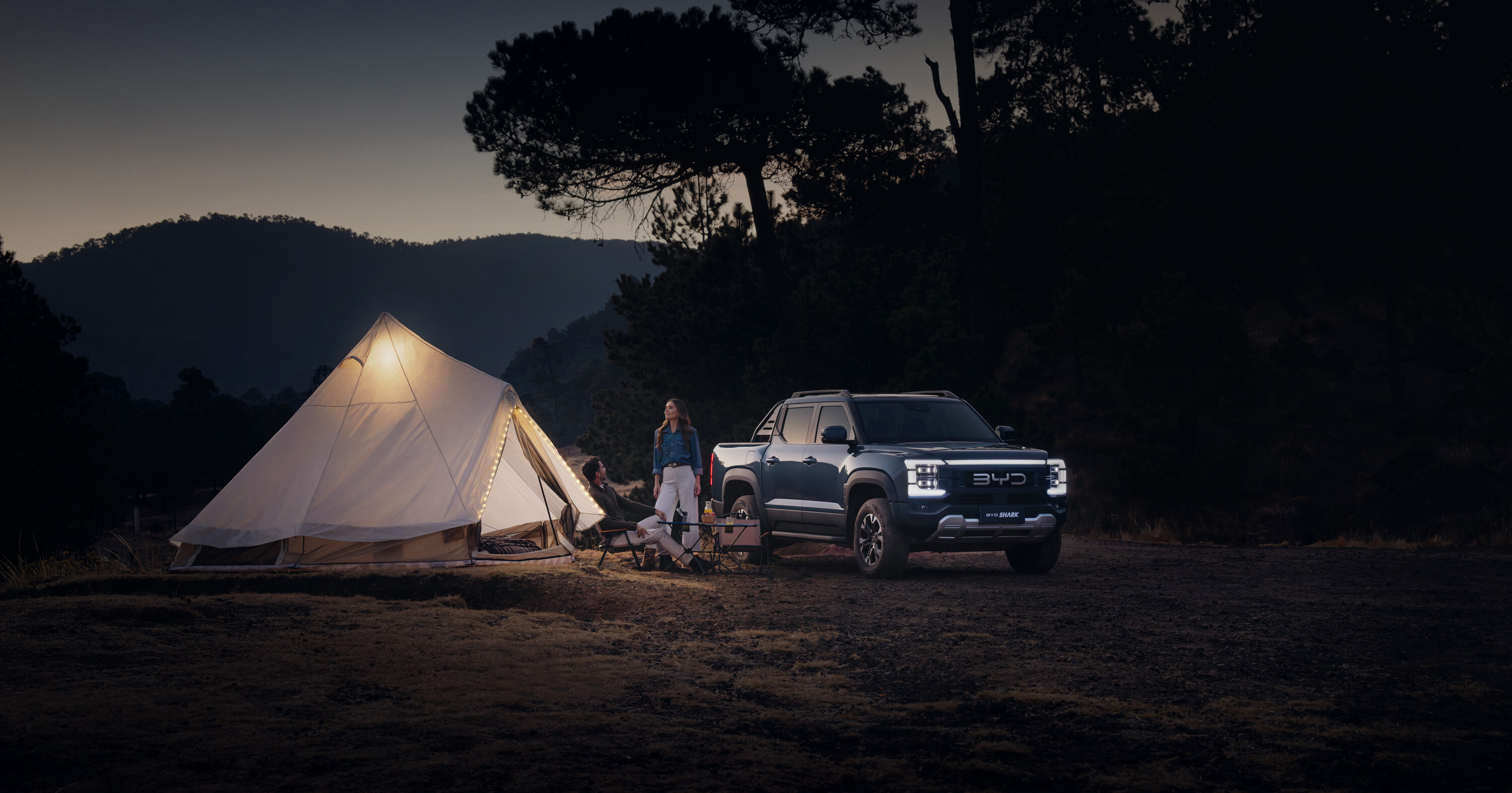I’m always on the look-out to improve my first-aid kit and knowledge, and over the last couple of years there has been some interesting developments with equipment and skills to do just that.
While shark attacks are pretty bloody rare – even here in Australia – they gather a lot of media attention and comment. Recently, a doctor came up with a method to stem the chronic blood loss from a shark attack, and while the attention was all on shark attack victims, the method could be used for anyone who has been involved with an accident and suffering from severe bleeding from the lower limbs.
Severe bleeding is life-threatening and takes priority over airway and breathing and needs to be controlled immediately. If immediate action is not taken, the victim will quickly bleed out and die. If bleeding from the leg, ‘Push hard halfway between the hips and bits’.
Interestingly, while tourniquets have long been frowned upon for first aiders, they seem to be becoming more acceptable in severe bleeding circumstances as pressure bandages just don’t stem the blood flow enough.
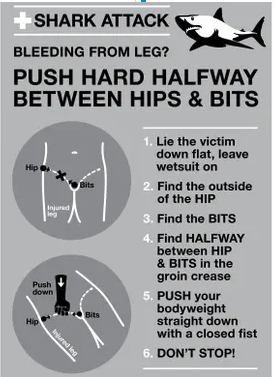
How the first-aid treatment is managed initially at the scene can have a dramatic effect on the victim’s chance of surviving an attack or accident. The Australian Resuscitation Council (ARC) is the peak body which makes recommendations that all first-aid programs follow in Australia. Its guidelines recommend firm direct pressure, sufficient to stop the bleeding, over the bleeding site. The ARC suggests you could use a pad or your hands.
If bleeding continues, you should apply another pad and a tighter dressing over the wound site. If a limb is involved, then you need to check circulation to the hand or foot regularly.
Other things that will help control bleeding are elevation of the bleeding part, restricting movement and of course, you should have the patient remain at rest.
The CAT 7 tourniquets are considered by many to be the best and quickest tourniquet on the market for the initial treatment of shark bites and the like where blood loss is great from a torn or shredded limb. You can buy one of these online. I’ve now added one of these tourniquets to my first-aid kit.
The first-aid treatment of stroke has been simplified as well in recent times, with a few simple steps to assess the victim. Act F.A.S.T as the diagram below indicates.
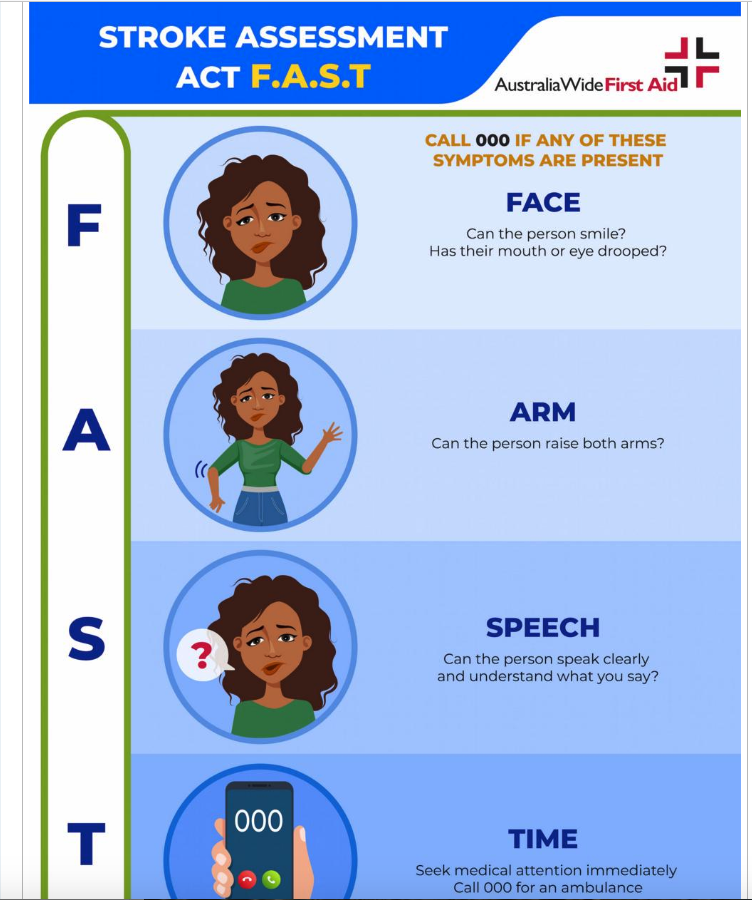
On our recent outback trip which I led for Moon Tours, I was pleasantly surprised to find a number of the guests were carrying a defibrillator. I’ve been carrying one for a couple of years now and with prices of these heart-starting machines being under or around two grand, I reckon every tour operator and 4WD club outing should have one on hand, even if you don’t reckon it’s worth carrying one for yourself or your loved ones. St John Ambulance Australia has them for sale along with a number of online outlets. They are simple to use.
The other item I’ve started carrying is ‘Boost Oxygen’. It comes in a small lightweight bottle and is 95 per cent oxygen and is readily available. Designed to boost performance, reduce fatigue and enhance recovery, it’s not really advertised as a first-aid product but it has to help if someone is suffering an asthma attack or even a heart attack or stroke. It can’t do any harm, so I carry a few bottles of the stuff – the weight is negligible!
These are the latest items and techniques I’ve added to my first-aid repertoire – they could save my life, or the life of a friend or relative … or a complete stranger. Maybe you should think of adding them to your first-aid kit – they gotta be worth it!

